‘Devastating’: Cuts to public broadcasting will be felt here, local experts say
| Published: 05-09-2025 5:23 PM |
Federal funding cuts to National Public Radio and the Public Broadcasting Service that were announced earlier this month would have serious implications for public media viewers and listeners in western Massachusetts, local experts say.
The executive order from President Donald Trump, titled “Ending Taxpayer Subsidization of Biased Media,” was issued on May 1. It directs the Congress-chartered Corporation for Public Broadcasting to cease direct or indirect funding to NPR and PBS “to the maximum extent allowed by law” to comply with the Trump administration’s directive that federal funding not be used to support “biased and partisan news coverage.”
Springfield-based New England Public Media, an NPR and PBS member organization, serves Franklin, Hampshire and Hampden counties and beyond, providing local news and programming. President Matt Abramovitz called the cuts “devastating.”
“Threats to CPB are really threats to local stations,” he said. “The news headlines are all about NPR and PBS, but impact will be felt here at home.”
As reported by NPR on May 2, Congress allocated $535 million for the CPB for the current fiscal year. That money is then provided to NPR and PBS. NPR typically receives about 1% of its funding from the federal government, and federal funding makes up about 15% of the PBS budget. The CPB also directly funds public radio and broadcasting stations across the U.S. through Community Service Grants.
The Associated Press reported that the executive order is the latest move by the Trump administration to use federal power to disrupt institutions whose actions or viewpoints he disagrees with. The CPB sued the president over his move to fire three members of its five-person board on April 29, contending that he had exceeded his authority and this would deprive the board of a quorum needed to conduct business.
The White House also said it would ask Congress to rescind funding for the CPB as part of a $9.1 billion package of cuts.
Statements from PBS’ CEO Paula Kerger, NPR’s President and CEO Katherine Maher, and CPB President and CEO Patricia Harrison each condemned the actions of the Trump administration, with Harrison stating on May 2 that “CPB is not a federal executive agency subject to the president’s authority. Congress directly authorized and funded CPB to be a private nonprofit corporation wholly independent of the federal government.”
Article continues after...
Yesterday's Most Read Articles
 Police remove Greenfield man from Elm Street house after 6-hour standoff
Police remove Greenfield man from Elm Street house after 6-hour standoff
 Shutesbury police chief on leave
Shutesbury police chief on leave
 Longtime farmers retire, close Butynski’s Farm Stand in Greenfield
Longtime farmers retire, close Butynski’s Farm Stand in Greenfield
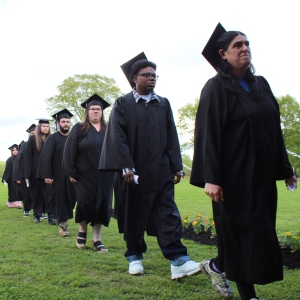 ‘Always go for your goals’: 30 students achieve high school equivalency credentials in Greenfield ceremony
‘Always go for your goals’: 30 students achieve high school equivalency credentials in Greenfield ceremony
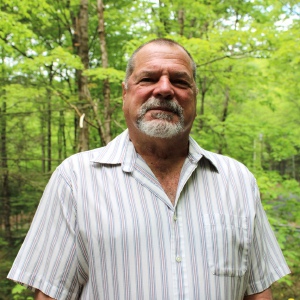 Lifelong Shelburne resident seeks Selectboard seat
Lifelong Shelburne resident seeks Selectboard seat
 Real Estate Transactions: May 16, 2025
Real Estate Transactions: May 16, 2025
In the Pioneer Valley, NEPM provides localized news coverage through staff reporters and editors, educational and cultural interest programming, alongside in-person programs and events.
Local shows such as “The Fabulous 413,” “The Rundown,” “Jazz A La Mode” and “As Schools Match Wits” are broadcast alongside national programming from NPR like “All Things Considered,” or PBS shows like “Arthur” for children or “PBS News Hour.”
NEPM receives some federal funding from CPB that makes up 10%, or $850,000, of its annual operating budget through Community Service Grants. This is part of its larger revenue base of private donors, underwriters, foundation grants and member support — all of which remain unimpacted, said President Matt Abramovitz.
Ultimately, the federal funding is still an invaluable source to properly operate the functions of NEPM, Abramovitz said.
“We get that money every year to help support our broadcast infrastructure and our programming and our staff here in western Massachusetts,” Abramovitz said. “It’s a percentage of our budget and that percentage can range.”
According to an NEPM federal funding guide, one of the differentiating factors of public media is it provides access to free news, education and cultural content over the radio, on television and online, as well as access to emergency alerts and other licensed content.
Public media reaches 99% of the U.S. population with its programming, “regardless of population density, income or geographic challenges,” according to NEPM’s Frequently Asked Questions page. Without CPB funding, it would be too expensive for individual public media stations to provide these services, especially for smaller stations without the revenue base to make up for the loss.
University of Massachusetts Amherst associate professor of journalist Joshua Braun shared his concern, noting his perception of the actions by the White House as counter-intuitive. He explained that while seeking to fix the perceived flaws of commercial media in the United States, defunding an already underfunded public media structure that could serve as the alternative would have the opposite effect.
“It’s a move in the opposite direction of what you would want if you want public media to be more independent, if you want them to be more robust, if you want them to serve their communities better,” he said.
In a similar vein, Massachusetts Broadcasters Association Executive Director Jordan Walton said he sees the value provided by PBS programming, and feels that the NPR affiliates in Massachusetts and beyond are doing nonpartisan journalism.
“I think public broadcasting and television radio brings a lot of positive to their communities,” Walton said. “There are NPR affiliates across not only Massachusetts, but across the country, that are doing tremendous news stories, hard news stories, not sort of the opinion-based, ‘left-leaning’ stuff that I think the [Trump] administration is trying to nip in the bud.”
This situation is still developing within the CPB, which means understanding the full extent of what will happen to NPR, PBS and their member stations is difficult, as both Braun and Walton point out. Both say the brunt of the federal cuts would fall to smaller public media stations and their staff, and Braun believes stations that are not in large cities, with larger donor bases to draw from, will be the most impacted.
To keep NEPM’s supporters informed as the situation progresses, Abramovitz explained that NEPM’s FAQ page on federal funding is a resource that will be used to provide updates. In the meantime, he said hypothetical scenarios are talked about in these uncertain situations, but he feels confident in the community support NEPM has in western Massachusetts.
“The core of our strength is right here in western Massachusetts,” Abramovitz said. “We feel good about the community support that we’ve seen so far and they’ll support us whatever comes our way.”
Erin-Leigh Hoffman can be reached at ehoffman@recorder.com or 413-930-4231.

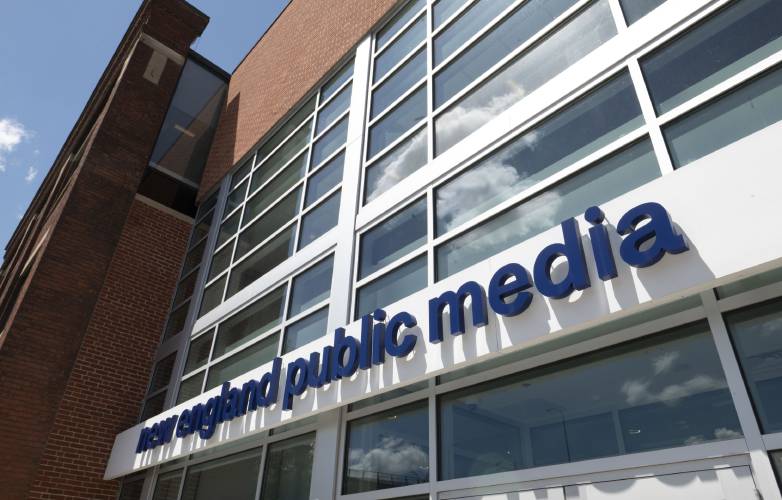
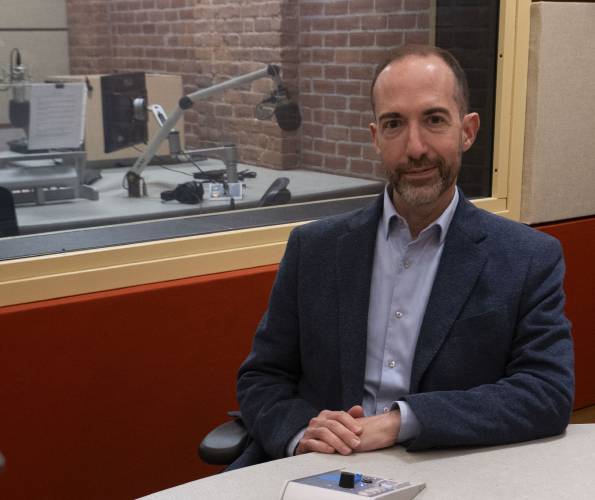
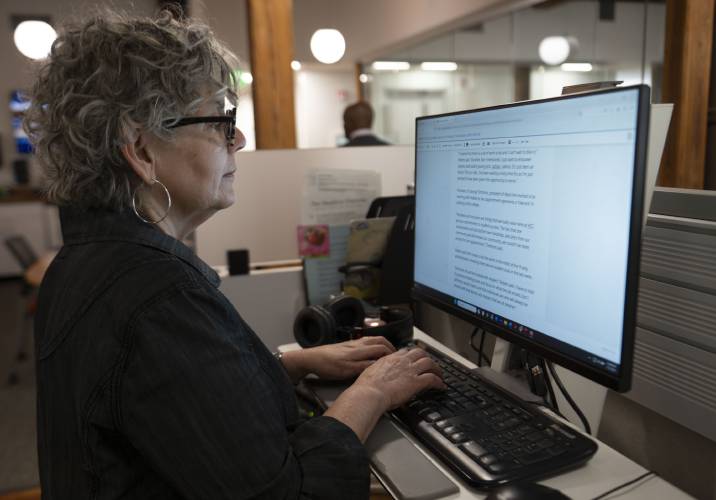
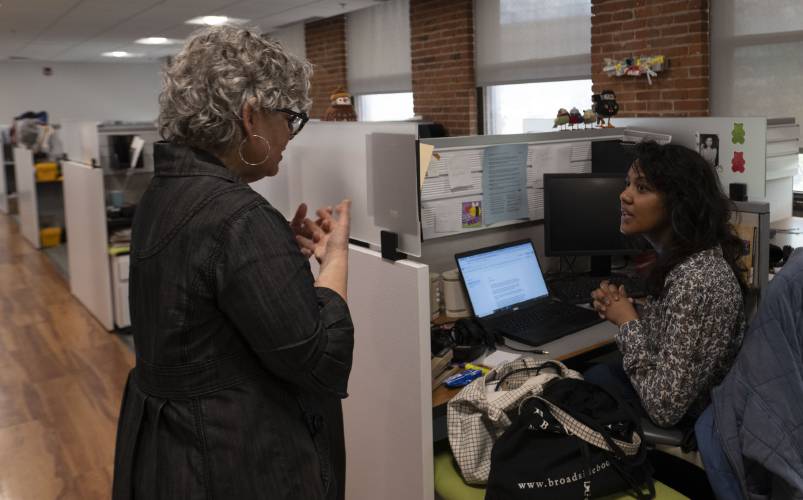
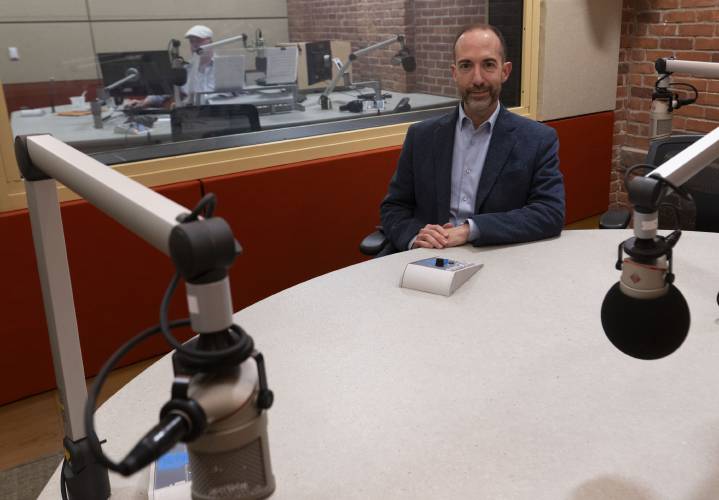
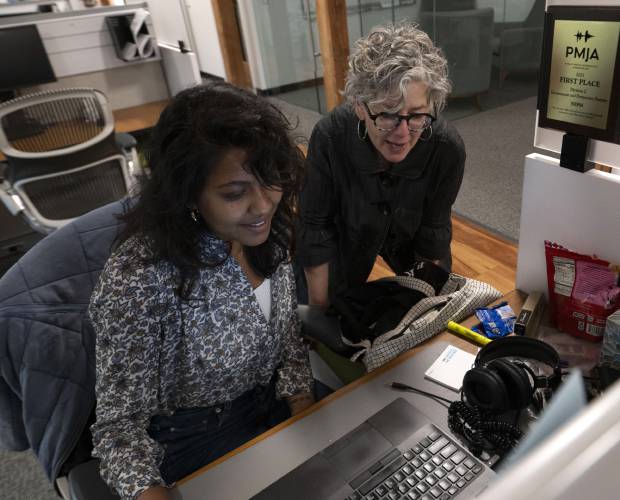





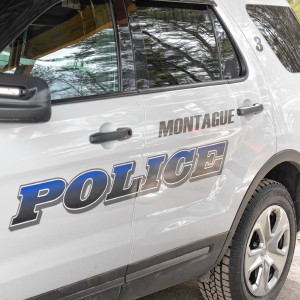 Montague Police Logs: May 1 to May 11, 2025
Montague Police Logs: May 1 to May 11, 2025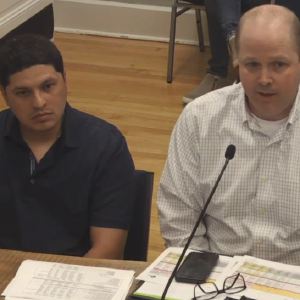 Orange Sewer Commission eyes rate hikes to fund wastewater operations
Orange Sewer Commission eyes rate hikes to fund wastewater operations Ready to fly: Greenfield Community College graduates 308 in ‘ challenging time’
Ready to fly: Greenfield Community College graduates 308 in ‘ challenging time’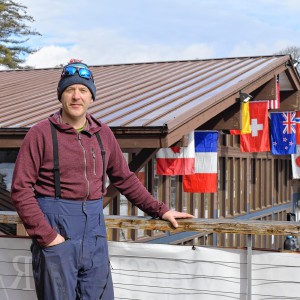 Berkshire East owner takes over Burke Mountain ski resort in Vermont
Berkshire East owner takes over Burke Mountain ski resort in Vermont
